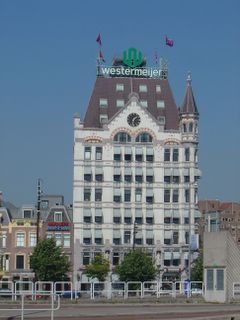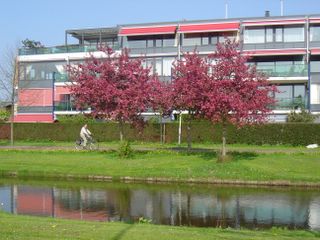Just in case you are wondering how Moldova fits into our mindset right now...here is a letter we sent to some friends and our family.
Four weeks ago, we left the country of Moldova after our summer there, and we still find ourselves missing it. During the summer, Moldova is ripe with fresh produce. We enjoyed fresh cherries, berries, plums, squash, peppers, tomatoes, and many other types of produce. Chisinau, the capital city, is full of activity. There are many restaurants, vendors, and shoppers throughout the city, making it a vibrant place to be. Moldovans are particularly hospitable people; we spent many hours with the local people, trying to understand their needs and desires, and enjoying their generous spirit.
For us, it was easy to feel at home in Moldova. Strange, considering we hadn’t heard of the country prior to learning about the internship. Even stranger since Moldova is the poorest country in Europe, and we have grown accustomed to the wealth of the West. But perhaps, “feeling at home” isn’t about knowing facts about a place or having the “things” that make life easier. Feeling at home, as we grew to understand this summer, is more about being content with where we are and finding ways to understand and serve the people around us.
This summer, we had the opportunity we had to work for BPN (Business Professional Network) and CAMED (Christian Agency for MicroEnterprise Development) to complete the internship requirement for Dan’s MBA program. Throughout the summer, we certainly did have many opportunities to learn about the agency and its microfinance mission. Both of us were encouraged that our business skills could be put to use, and that they are as important to “ministry” as other “more spiritual” gifts, like preaching, are. Dan used his ability to learn the operations and his skills with information technology to simplify the lending process; now the staff can use more of their time working directly with clients instead of finalizing paperwork. Beth wrote two grant applications using information from two of Dan’s client case studies. After we had left, we learned that one of the clients had been awarded the $2000 top grant award. This quintuples his start-up loan!
Throughout the summer, we met with several Christian clients who each ran businesses and ministered to both believers and non-believers through their business. It was both humbling and motivating to see these men and women using what little they had to provide for their family and advance the kingdom of God. Anastasia, a CAMED client, tended goats for the elderly in her village. She charged about $0.80 per month per goat, and she gave the milk from the goats back to her clients so they would have milk and cheese to eat or sell. She has a waiting list for clients, mostly non-believers, because the people in her village know she is trustworthy and truly cares about people. Hers is a wonderful story of how Christians in Moldova can use their businesses to show love and compassion to others.
Client meetings, like the one with Anastasia, helped us to understand the impact of microfinance on the developing world. To many, it seems like $400 or even $1000 could never truly help someone begin a successful business. These small loans, however, have helped several hundred clients start and run successful businesses. These clients’ families are directly impacted by the loans this small, 6-person agency makes. The indirect impact is staggering: the agricultural village of Tintereni has been transformed economically, and many businesses have been able to start and grow in Chisinau (the capital) and around many other communities. Several churches are well-funded now, mostly from CAMED-enabled businesses, which enables them to minister to the needy around them. Hope is evident in CAMED’s clients when they are starting their business, or when they are contemplating expanding their business. In this poor country, a former U.S.S.R. republic, hope can be difficult to find.
The economic situation in Moldova is difficult, despite its promising agriculture and educational systems. One-half of the GDP of the country comes from Moldovans who are living and working overseas and send money home each month. This is creating artificially high prices for homes, cars, and many other products. Moldovan families who want to stay together in their own country often find they cannot earn enough money to afford to buy (or even rent) their own home. The spiritual condition in Moldova is promising, but there is so much to be done. In July, Franklin Graham led a crusade where tens of thousands of people gave their lives over to Christ. Pray for the local churches, that they will have effective follow-up needed for these new believers. Interestingly enough, the Orthodox church was protesting outside the meetings. Their hold in this country is strong, but they do not preach the Gospel of grace that Jesus came to this earth to share.
CAMED’s workload is big. They are one of only a few microfinance agencies in the country, and the only known Christian microfinance agency. They provide loans to entrepreneurs, but they also provide Biblically-centered training and counseling to the communities in which they work. The staff, particularly the director, is over-worked, and they take a lower-than-average salary (and average isn’t much!) because they believe in the mission of CAMED: to build and expand the Kingdom of God in Moldova through economic development, education, and spiritual ministry.
As for us, we are still praying and determining future direction. We remain committed to exploring opportunities for economic development in Eastern Europe, though we believe our skills and desires would be better met in a larger-scale organization. We would certainly appreciate your thoughts and prayers for us as we look toward the next steps.













